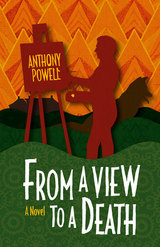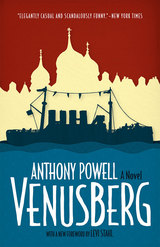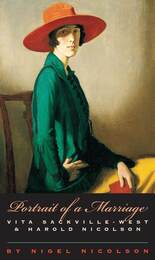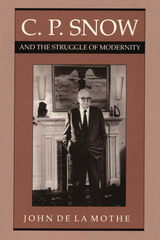Venusberg: A Novel
University of Chicago Press, 1932
Paper: 978-0-226-31412-9 | eISBN: 978-0-226-31426-6
Library of Congress Classification PR6031.O74V46 2015
Dewey Decimal Classification 823.912
Paper: 978-0-226-31412-9 | eISBN: 978-0-226-31426-6
Library of Congress Classification PR6031.O74V46 2015
Dewey Decimal Classification 823.912
ABOUT THIS BOOK | AUTHOR BIOGRAPHY | REVIEWS | TOC | REQUEST ACCESSIBLE FILE
ABOUT THIS BOOK
Written from a vantage point both high and deliberately narrow, the early novels of the late British master Anthony Powell nevertheless deal in the universal themes that would become a substantial part of his oeuvre: pride, greed, and the strange drivers of human behavior. More explorations of relationships and vanity than plot-driven narratives, Powell’s early works reveal the stirrings of the unequaled style, ear for dialogue, and eye for irony that would reach their caustic peak in his epic, A Dance to the Music of Time.
Powell’s sophomore novel, Venusberg, follows journalist Lushington as he leaves behind his unrequited love in England and travels by boat to an unnamed Baltic state. Awash in a marvelously odd assortment of counts and ladies navigating a multicultural, elegant, and politically precarious social scene, Lushington becomes infatuated with his very own, very foreign Venus. An action-packed literary precursor to Wes Anderson’s The Grand Budapest Hotel, Venusberg is replete with assassins and Nazis, loose countesses and misunderstandings, fatal accidents and social comedy. But beyond its humor, this early installment in Powell’s literary canon will offer readers a welcome window onto the mind of a great artist learning his craft.
Powell’s sophomore novel, Venusberg, follows journalist Lushington as he leaves behind his unrequited love in England and travels by boat to an unnamed Baltic state. Awash in a marvelously odd assortment of counts and ladies navigating a multicultural, elegant, and politically precarious social scene, Lushington becomes infatuated with his very own, very foreign Venus. An action-packed literary precursor to Wes Anderson’s The Grand Budapest Hotel, Venusberg is replete with assassins and Nazis, loose countesses and misunderstandings, fatal accidents and social comedy. But beyond its humor, this early installment in Powell’s literary canon will offer readers a welcome window onto the mind of a great artist learning his craft.
See other books on: Fiction | Literary | Novel | Powell, Anthony | Stahl, Levi
See other titles from University of Chicago Press





























